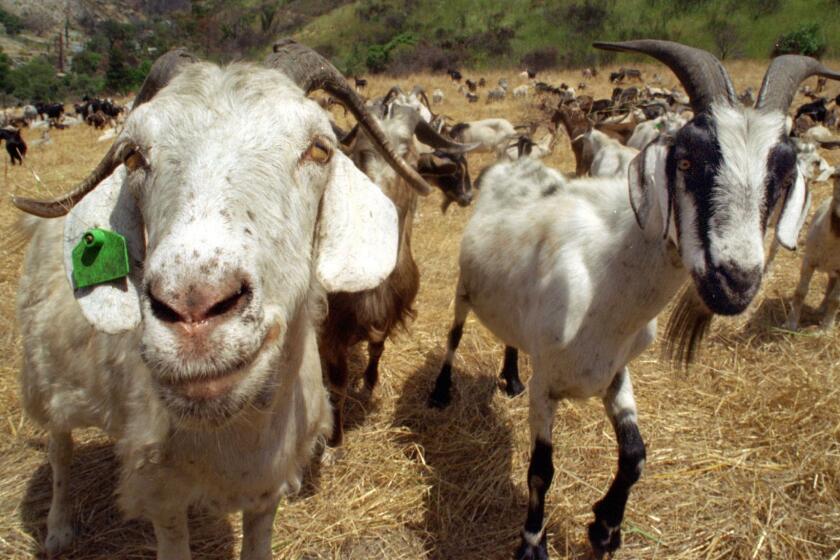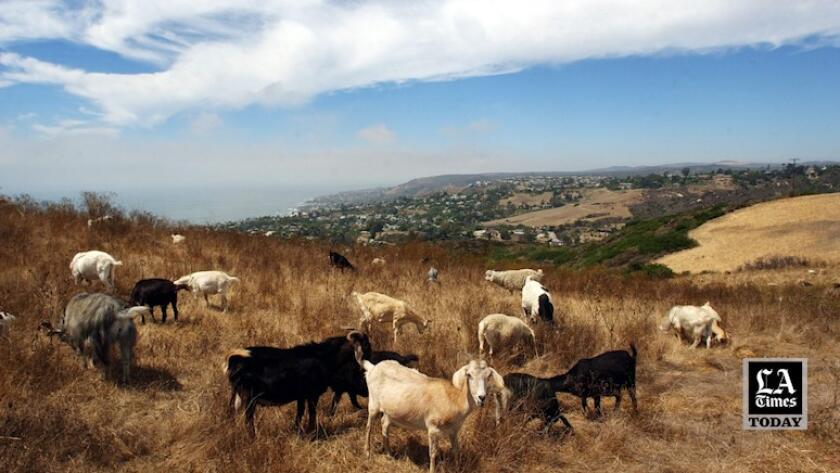Grazing goats prevent California wildfires. New salary rules may jeopardize the industry
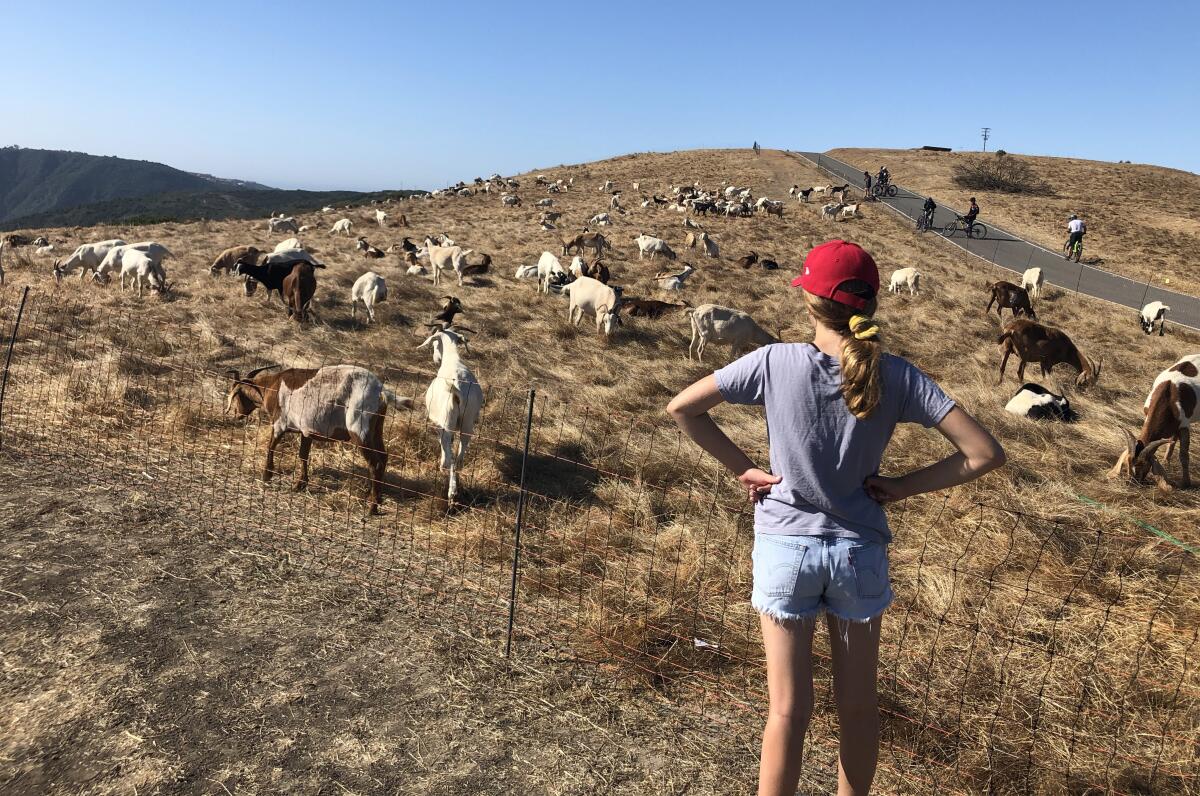
- Share via
Increasingly in recent years, Californians have put goats’ voracious and almost indiscriminate diets to work, minimizing fuel for wildfires across the state — a method that has been heralded as sustainable, economical and effective at reducing underbrush that can become dangerous in the hot summer months.
But goat ranchers worry a recent change in state labor requirements for herders could jeopardize the future of the industry — which some have said is particularly important this year, after an extremely wet winter left behind even more fuel for wildfires.
Goat herders were recently reclassified by California labor regulators, differentiating them from sheep herders — a new distinction that means goat herders will no longer be eligible for a monthly herders’ compensation, set at a minimum of $2,755 plus required overtime. Instead, employers will be required come Jan. 1 to compensate goat herders at an hourly rate, now set at $15.50 for farmworkers, plus required overtime.
And given the nature of a goat herders’ job, which is considered on-call 24/7, industry leaders and the California Farm Bureau estimate that change would come out to almost $14,000 a month.
“We can’t afford that; cities can’t afford that,” said Tim Arrowsmith, the owner and manager of Western Grazers in Red Bluff, who employs a few dozen herders for his several thousand goats. He said that monthly salary is almost four times what he currently pays his goat herders, which he already considers a fair wage, noting that they are also provided with housing, groceries, cellphones and clothes.
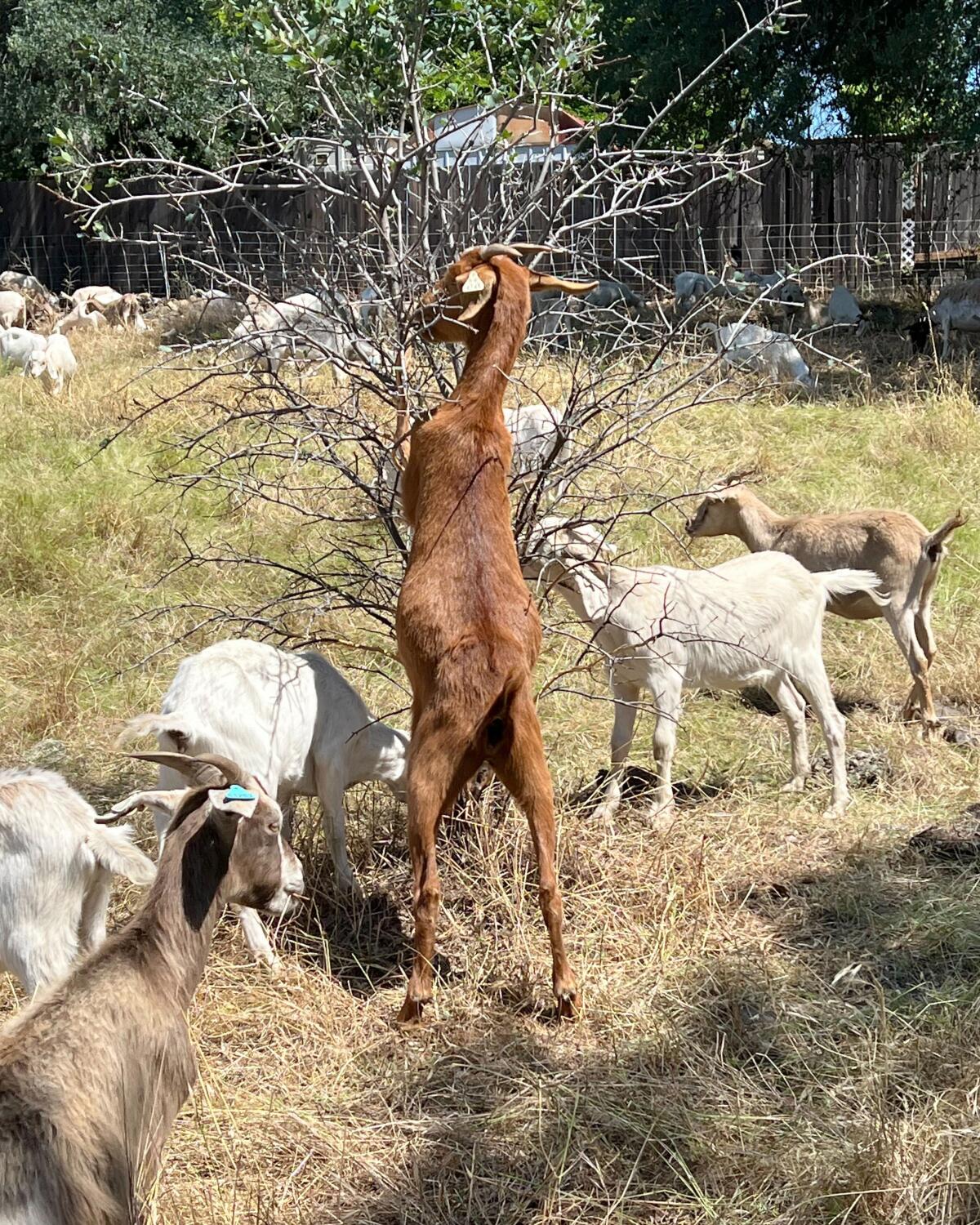
Arrowsmith said if this switch goes into effect next year, he will not be able to sustain his goat-grazing business — and many areas in need of his easy and ecofriendly fire abatement will be at a loss.
“We’ve lost millions of homes ... we’ve had loss of life, towns have burned up” from wildfires, Arrowsmith said. “To take goats off the table when they do such an effective job in places where you can’t get weed eaters or equipment … it’s crazy.
“That’s really what it’s about, fire mitigation, fuel abatement … so the state doesn’t burn up,” Arrowsmith said.
Firefighters in California have already responded to more than 640 wildland fires this year alone, including 135 in the last week.
Arrowsmith said about 90% of his company’s contracts are focused on minimizing wildfire fuel.
Officials with the state Department of Industrial Relations and the Employment Development Department did not respond directly to questions from The Times about the reclassification.
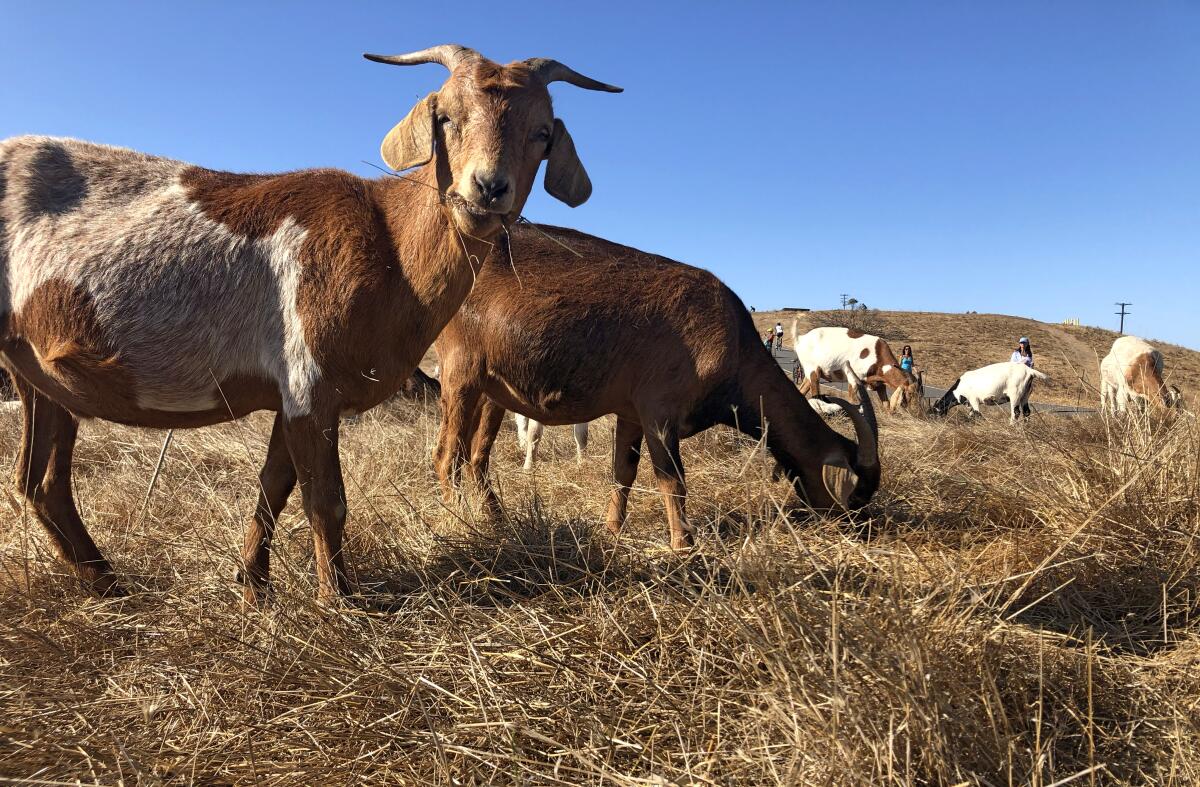
From Laguna Beach to Sacramento, goats have become an easy and smart way to reduce brush, especially in difficult-to-access regions, such as rocky, steep mountainsides. Federal, state and local governments, as well as homeowners associations and parks, have contracted with goat-grazing companies for this work.
“Goats are particularly well-suited to wildfire fuels control,” Bryan Little, director of employment policy for the California Farm Bureau, wrote in a recent post about the issue. “While they will graze dry grasses like sheep, goats also devour highly flammable taller brush that sheep don’t notice.”
Little and others in support of goat-grazing businesses recently backed Assembly Bill 1099, which would keep the current compensation requirements for goat herders. But the proposal from Assemblymember Megan Dahle (R-Redding) hasn’t yet been scheduled for a committee hearing.
With a shrill call, Agotilio Moreno beckons 150 goats scattered across the rolling slopes of Laguna Canyon.
Little and Arrowsmith said the majority of goat herders in California — of which there are probably fewer than 100 — come on temporary work visas from Peru, usually staying for about three years. Arrowsmith said most of his employees are able to send money home to their families, building homes and even sending their children to private schools, calling the current compensation package more than a fair wage.
But Lorena Gonzalez Fletcher, chief officer of the California Labor Federation, said there needs to be more oversight for these workers, who she called particularly vulnerable — even if she agrees that considering them hourly workers probably doesn’t make sense.
“We’re talking about taxpayers’ dollars being used in the furtherance of having goats. Don’t we have a responsibility to take a look at this [industry]?” Gonzalez Fletcher said. “Nobody is overseeing this.”
She said just because it’s a small cohort of temporary workers doesn’t mean state officials should assume the status quo is working. She pointed out that last year the western U.S. sheepherders banded together to sue their employers, saying they were artificially suppressing wages.
“It’s an issue we have look at,” said Gonzalez Fletcher, who authored and helped champion the farmworker overtime bill when she was a legislator representing San Diego. The legislation signed by then-Gov. Jerry Brown in 2016 also increased requirement compensation for goat herders, who were making just under $2,000 a month in 2019. With pay bumps and newly required overtime payments, minimum monthly pay has increased to $3,853 as of this year, according to the Department of Industrial Relations.
In tiny Nevada City, a Gold Rush town in Northern California touting a population of 3,100, folks are big on a novel idea to fight the increasing threat of wildfires: calling in the goats.
Given their long hours and stints away from their families, Gonzalez Fletcher said it’s likely these goat herders still deserve better compensation. She would like to see California goat employers work toward longer-term solutions, instead of simply looking to repeal this new classification.
“I’m all about making it work for our agricultural industry, and we need these abatement opportunities,” Gonzalez Fletcher said, “but if we allow an exemption without any oversight for these Peruvian goat herders, what comes next?”
For Arrowsmith, he said there’s no path to continue his business — which he grew from about 10 goats a decade ago to several thousand now — if this change proceeds.
“It’s really been a story of hard work, sacrifice, sweat and good fortune,” he said, “but now we’re fighting the state of California.”
- Share via
Watch L.A. Times Today at 7 p.m. on Spectrum News 1 on Channel 1 or live stream on the Spectrum News App. Palos Verdes Peninsula and Orange County viewers can watch on Cox Systems on channel 99.
More to Read
Sign up for Essential California
The most important California stories and recommendations in your inbox every morning.
You may occasionally receive promotional content from the Los Angeles Times.


